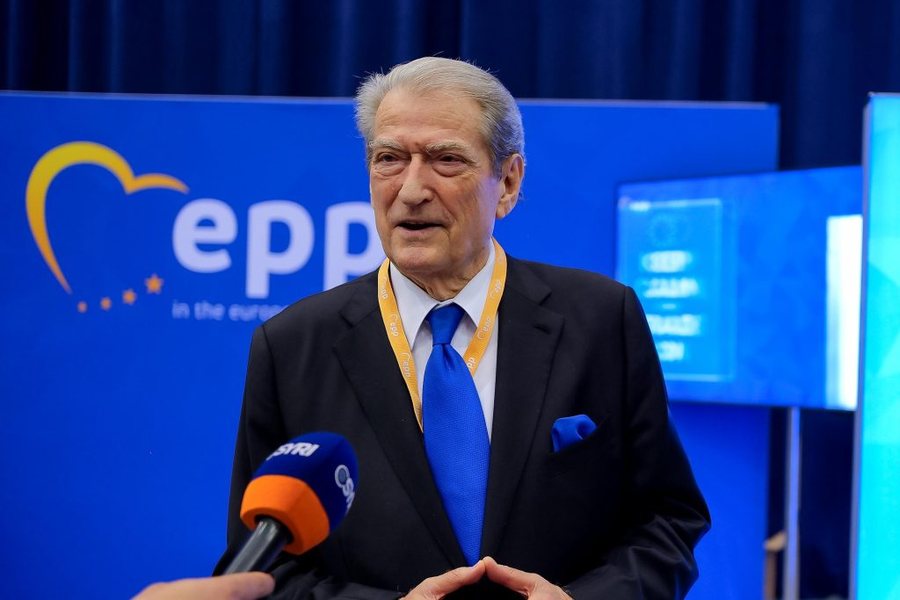Berisha courts Greek support ahead of elections with Mitsotakis meeting at EPP congress

Photo: Sali Berisha, leader of the Democratic Party, at the EPP Congress in Valencia.
Democratic Party leader Sali Berisha met with Greek Prime Minister Kyriakos Mitsotakis during the European People’s Party (EPP) congress in Valencia this week — a meeting marked by warm words and mutual respect. The encounter, captured on video and widely circulated by Democratic Party channels, is part of what appears to be a growing effort by Berisha to strengthen ties with Greece, just days before Albania’s May 11 parliamentary elections.
Why this is important: Berisha’s outreach to Athens, including his vocal support for the controversial ethnic Greek politician Fredi Beleri and his public alignment with Greek conservative leadership, seems to be part of an apparent strategy to escape international isolation. But the move is not without risk. While it may earn him points abroad, it could alienate Albanian voters who remain wary of Greek nationalist narratives, particularly about the sensitive Himara region.
Context: Relations between the Albanian and Greek governments deteriorated dramatically following the arrest and subsequent conviction of Fredi Beleri for vote buying in May 2023. Greek officials accused Tirana of political persecution and issued a series of ultimatums demanding his release, even threatening to block Albania’s EU accession process. However, their stance received little backing from the EU, the U.S., or other member states — leaving Athens diplomatically isolated.
Although relations have apparently started to thaw, it is against the backdrop of tensions that Berisha has increasingly positioned himself as an ally to Greek conservatives and nationalist. His public defense of Beleri at the EPP congress and now his meeting with Mitsotakis are part of a broader effort to reassert his relevance on the international stage. As a sanctioned figure by the United States and the United Kingdom, Berisha has few options left for international engagement — and Greece appears to be one of the few willing interlocutors.
A calculated gamble: The Mitsotakis-Berisha meeting was presented as confirmation of “stable relations” between the Democratic Party and the European right. It’s a message meant to counter Berisha’s status as persona non grata in much of the West.
Yet in Albania, many observers view this turn toward Athens with skepticism.
Berisha’s embrace of Beleri — a convicted vote-buyer and a controversial figure due to alleged ties to Greek nationalist paramilitaries — and his increasing alignment with Greek political actors, are seen by some as politically desperate and potentially electorally counterproductive. Others view these overtures as revealing Berisha’s true objective: the rehabilitation of himself and his family, rather than electoral victory.
What’s next: With just over a week until elections, Berisha is intensifying his efforts to break his international isolation while his party struggles to gain ground domestically. The meeting with Mitsotakis may be presented as diplomatic momentum, but whether it translates into electoral support remains uncertain. In fact, for many Albanian voters, it may raise more questions than it answers about the Democratic Party’s direction under Berisha’s leadership.


